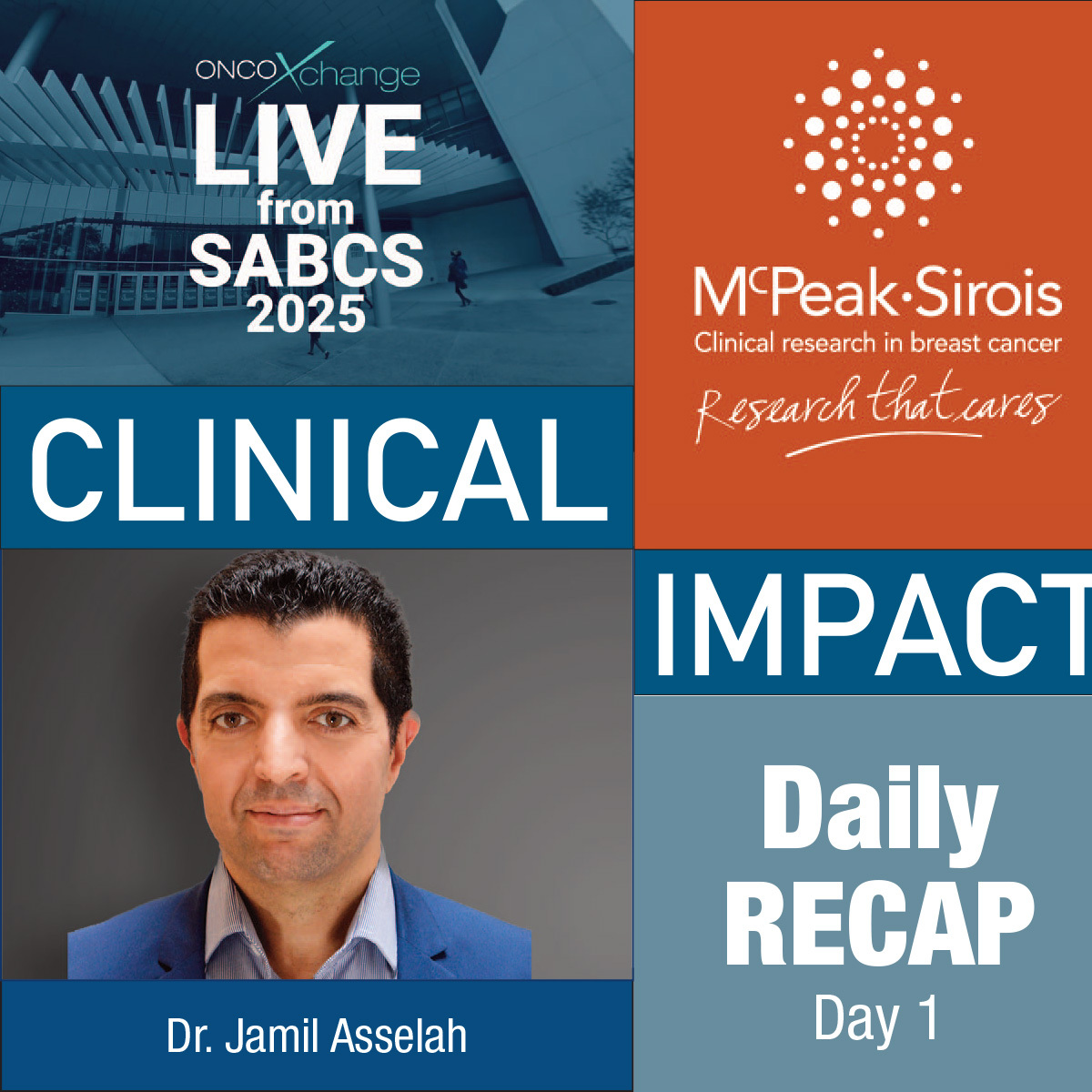
Updated APHINITY analysis shows benefit of adjuvant pertuzumab in node-positive patients regardless of hormone status
December 2019
By Wayne Kuznar for oncoXchange
A second interim analysis of the APHINTY trial shows a strengthening of the clinical benefit with the addition of pertuzumab to trastuzumab and chemotherapy as adjuvant therapy in patients with HER2-positive node-positive early breast cancer, but without a significant advantage yet in overall survival (OS).
After a median follow-up of 74.1 months, the time to first invasive disease-free survival (IDFS) event was significantly superior in the pertuzumab arm versus the placebo arm (221 events vs. 287 events), corresponding to a hazard ratio (HR) of 0.76 (95% CI, 0.64-0.91) in favor of pertuzumab.
The node-positive group derived most of the benefit on IDFS from adding pertuzumab (173 vs. 239 events), with a HR of 0.72 (95% CI, 0.59-0.87).
The absolute difference in the IDFS rate in the node-positive cohort was 4.5% (87.9% vs. 83.4%), reported Martine Piccart, MD, PhD, cofounder of the Breast International Group and scientific director at the Institut Jules Bordet in Brussels, at the 2019 San Antonio Breast Cancer Symposium.
In contrast, no treatment effect of pertuzumab was detected in the node-negative group. The HR for IDFS in the node-negative cohort who received pertuzumab was 1.02 (95% CI, 0.69-1.53), with 48 events in each arm.
Although fewer deaths were observed in the pertuzumab group at the latest follow-up, the difference did not achieve statistical significance, with 125 deaths in the pertuzumab arm versus 147 in the placebo arm (HR, 0.85; 95% CI, -0.5 to 2.2; P=0.170).
Although fewer deaths were observed in the pertuzumab group at the latest follow-up, the difference did not achieve statistical significance, with 125 deaths in the pertuzumab arm versus 147 in the placebo arm (HR, 0.85; 95% CI, -0.5 to 2.2; P=0.170). The 6-year rates OS were 94.1% in the pertuzumab arm and 93.9% in the placebo arm. The OS data are still immature, with only 42.5% of the 640 deaths needed for definitive OS analysis, and longer follow-up may be needed for an OS difference to emerge, said Dr. Piccart. The next interim analysis is scheduled for 2022.
The OS data are still immature, with only 42.5% of the 640 deaths needed for definitive OS analysis, and longer follow-up may be needed for an OS difference to emerge, said Dr. Piccart.
APHINITY randomly assigned 2,400 operable patients with centrally confirmed HER2-positive breast cancer to the pertuzumab plus trastuzumab plus chemotherapy arm and 2,405 patients to the trastuzumab plus chemotherapy plus placebo arm. Radiation and/or endocrine therapy could be started at the end of adjuvant chemotherapy. The data cutoff for this updated OS analysis presented here was June 19, 2019.
At the latest analysis, the treatment benefit of pertuzumab on IDFS is observed in both the hormone receptor-negative cohort (HR, 0.83; 95% CI 0.63-1.10) and the hormone receptor-positive cohort (HR, 0.73; 95% CI, 0.59-0.92).
“No new cardiac safety issues emerged with 2.5 more years of follow-up,” she said.
One additional primary cardiac event was reported in the pertuzumab arm and one additional secondary cardiac event was reported in each arm. The rate of severe cardiac events remains <1% in the two groups.
Better markers are needed to select patients for pertuzumab, said Dr. Piccart.
“We have only one biomarker, nodal positivity, to identify patients who might benefit from pertuzumab, and that’s not satisfactory,” she said. “Statisticians are now working on developing a composite risk score, which takes into account not only the nodal status but the tumor size, patient age, hormone receptors, tumor-infiltrating lymphocytes, and the degree of HER2 amplification.” How patients with low, intermediate, or high composite risk scores behave when treated with the two regimens will be examined. In this way, some node-positive patients who now appear to benefit from the addition of pertuzumab may not have high composite risk scores and could be spared the drug she said.

Comments (0)